Elizabeth Love walked through the doors of the Jo Ann Gora Student Recreation and Wellness Center curious and intrigued.
She headed downstairs into the gymnasium, where the hardwood squeaked as full-court pickup games occurred and basketballs shot through the air.
However, one court was reserved for wheelchair basketball. This was the then-freshman’s first time attending, and she wanted to watch and see if it was something of interest.
It was the final time she would be a spectator at a wheelchair basketball game.
“After I saw it, I kind of was sitting there like, ‘Why am I not playing? I shouldn’t just be here watching — I should play,’” Love said. “Ever since that first experience, I went back every week.”
Now a junior, Love is an active participant in wheelchair basketball and said it’s helped her build relationships and empower herself after undergoing extensive surgery at 16 years old because of her spastic quadriplegic cerebral palsy diagnosis.
“After losing the independence that I did after surgery, I felt like I kind of have a little bit of that back,” Love said. “It's also been a great way for me to connect with people on campus, whether they're disabled or not. I've met people who have gone through similar struggles at that moment, and it's always good to have them around because they keep me mentally sane throughout the semester.”
Love was born three months earlier than expected. She couldn’t breathe at birth, causing a lack of oxygen to the brain. After her parents noticed she couldn’t crawl or walk at a normal age and she favored the right side of her body, Love was diagnosed with spastic quadriplegic cerebral palsy. Spastic quadriplegic cerebral palsy tightens Love’s muscles and limits her mobility.
Before surgery, Love was told she would return to normal functioning within two years, but it never happened. Following surgery, Love taught herself how to walk, get dressed, go down the stairs and have adequate balance to prevent falling. She didn’t play sports growing up, but Love said wheelchair basketball has given her the chance to reclaim some freedom.
“I had to relearn all of these basic life skills to get to the point where I could be independent,” Love said. “I’ve been through a lot, and wheelchair basketball has kind of allowed me to take a little bit of that back. There's something about being able to play a sport, whether you use a wheelchair or not. When you haven't been able to do that for a long time, it feels really good.”
Wheelchair basketball has been off and on at Ball State for several years. In the late 1980s and early 1990s, it was an official recreation team and traveled to compete against universities. Ball State Director of Disability Services and 2004 Ball State graduate Courtney Jarrett said wheelchair basketball's purpose is to create an inclusive environment.
“I think it helps that it’s for everyone, no matter if the person has a disability or not,” Jarrett said. “We want anyone who is interested to come and participate. I want students with disabilities to be Ball State students first and foremost and have the same experiences as everyone else on campus.”
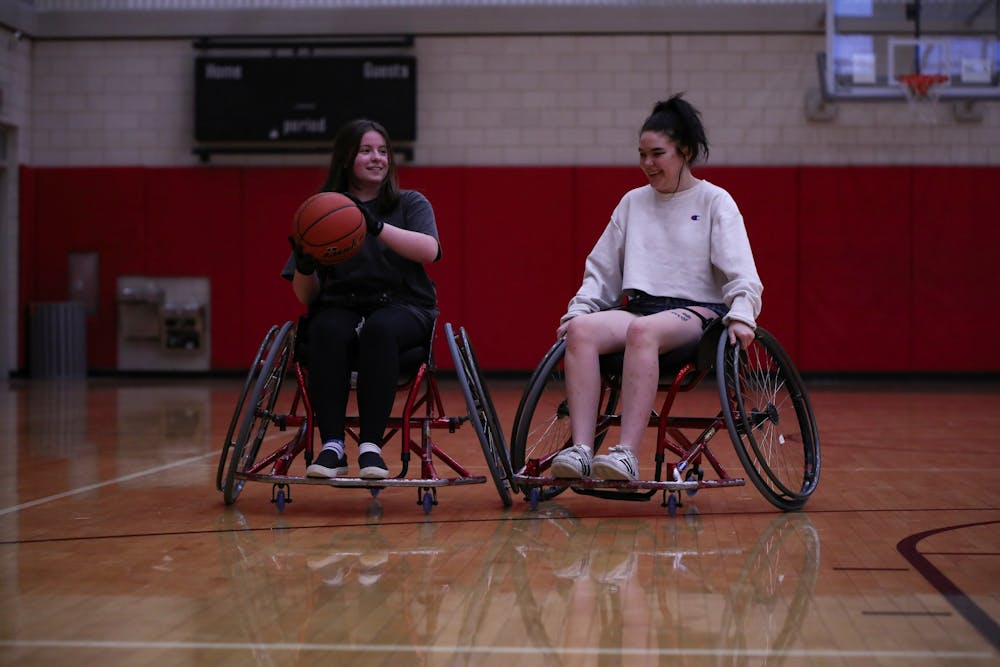
Before she applied to Ball State, Love didn’t know about the Alliance for Disability Awareness (ADA) and said she was hesitant about transitioning from high school to college. However, Love was surprised when completing her application.
“I remember on the application, there was like a little check mark that you could hit and it said, ‘When you go into campus, do you want to meet with somebody of the Office of Disability Services?’” Love said. “I’ve never seen that on a school application or tour sign-up, and that immediately made me feel like they cared. Then I came to campus, and it just felt like the right place to be.”
Sophomore music education major Catherine Shepherd works for the Office of Disability Services and began playing wheelchair basketball this semester after one of her coworkers asked if she was interested in joining after low attendance during the fall 2021 semester. Shepherd said she was excited to join even though she is not disabled.
“I thought it was a great kind of playing field to help integrate the disabled community along with the rest of the community,” Shepherd said. “We'll see people walking around through the balcony and just stop and watch us for like 10 minutes. It provides a positive outlook to the disabled community and the advocacy community.”
Love, a public relations major, worked as a social media coordinator for the Alliance for Disability Awareness her first two years and is currently involved with the Public Relations Student Society of America. She said wheelchair basketball serves as a channel for her to embrace being a student and not necessarily an adult.
“You can just go and have fun,” Love said. “Nobody cares if you're good at playing. We don't care if you are disabled or not, just go and have fun.”
Shepherd said the biggest lesson she has learned in her time with wheelchair basketball is she can relate to the participants and engage with them even through their differences.
“These people have the same experiences as you, just in a different way,” Shepherd said. “You don't realize how similar yet different your experiences are in life. It's almost a humbling experience for me.”
Love understands basketball is normally played while standing, but she finds wheelchair basketball more exciting and said it serves as an opportunity for the non-disabled to gain perspective.
“I think it's more fun than regular basketball,” Love said. “Sometimes, it's like human bumper cars — I swear we just ran into each other. We have a lot of people who will watch us play, and they'll be a little bit skeptical because they may have never seen wheelchair basketball. Sometimes, people are nervous to try it out, and then they try. It becomes something they come back for.”
Moving forward, Love said, she hopes to expand the wheelchair basketball club and continue raising awareness for disabled people.
“There's not as many people of minorities on college campuses, and they need to go where they can find people that have been through similar experiences,” Love said. ‘It's greatly important in just learning awareness overall and making non-disabled people more aware that disabled people can do the same thing, it might just look a little bit different.”
Contact Charleston Bowles with comments at clbowles@bsu.edu or on Twitter @cbowles01.

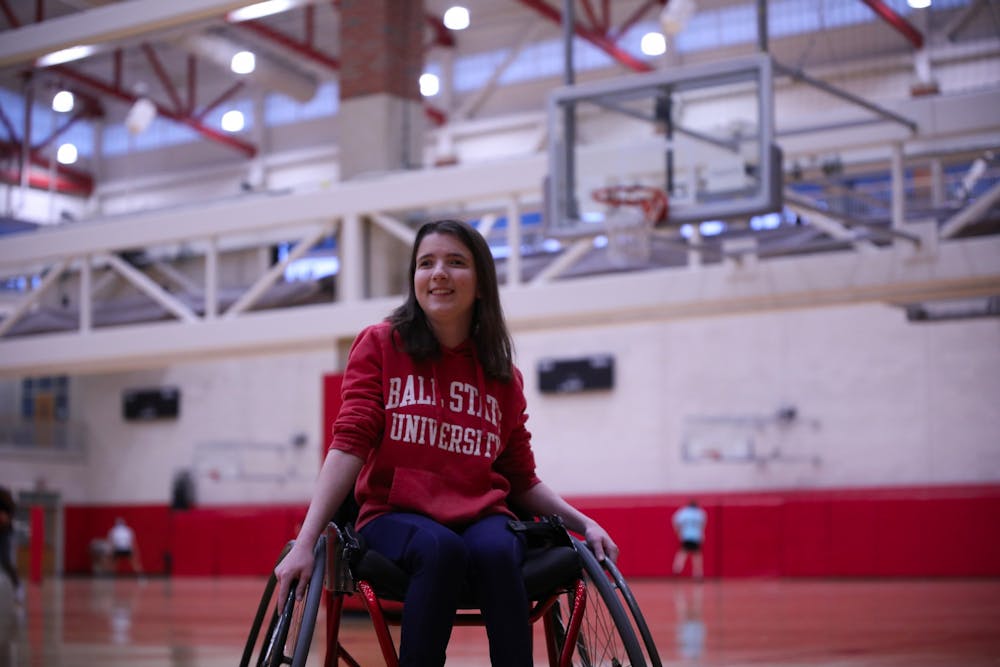
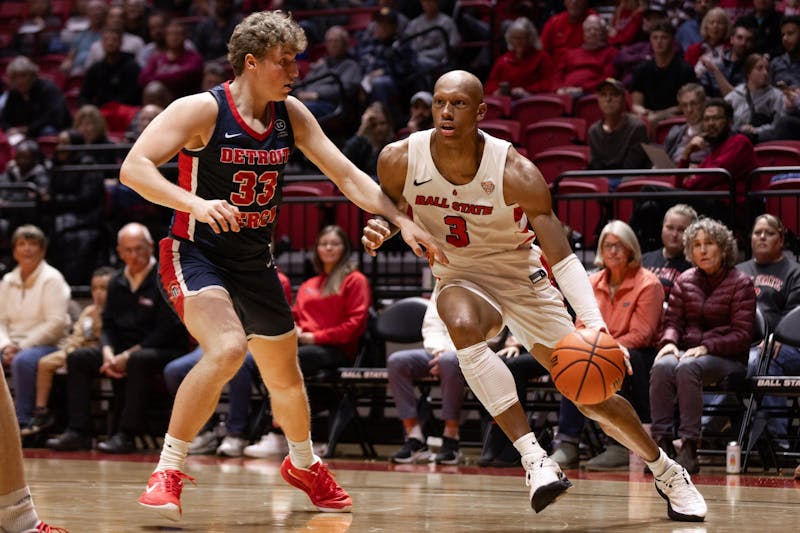
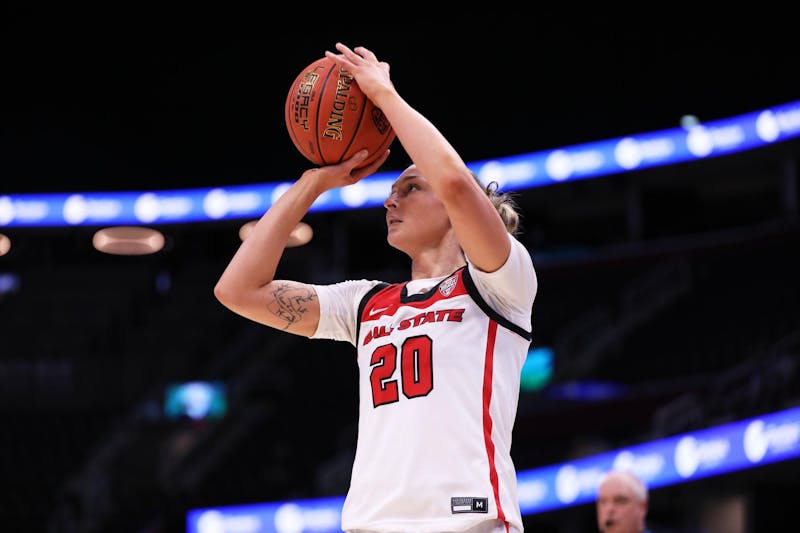
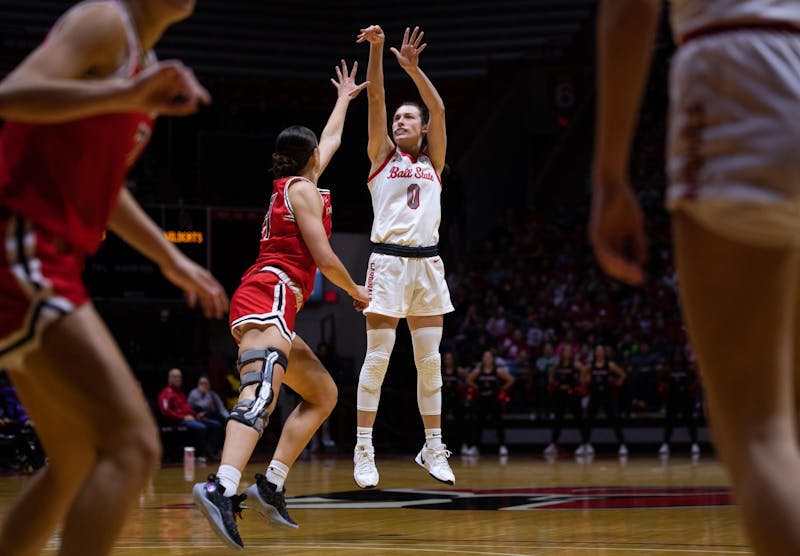
The Daily News welcomes thoughtful discussion on all of our stories, but please keep comments civil and on-topic. Read our full guidelines here.